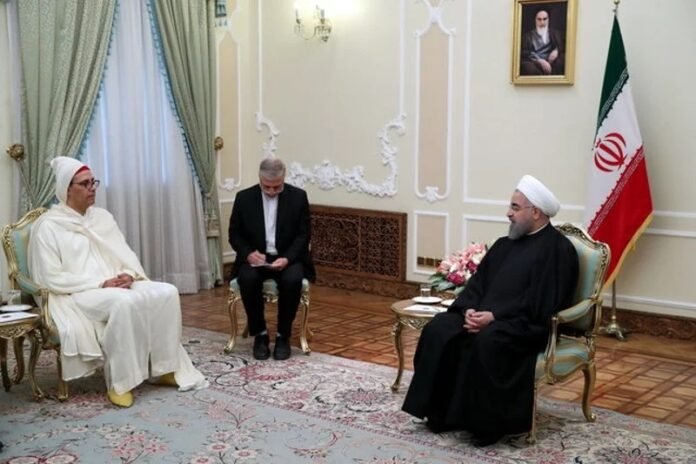Moroccan-Iranian relations appear to be on a fluctuating path, where political and diplomatic dimensions intersect with regional and international dynamics, creating a complex scene. Since Morocco’s decision to sever ties with Iran in 2018 due to what the kingdom described as “Tehran’s support for the Polisario Front” through Hezbollah, questions about the possibility of normalizing relations between the two countries have resurfaced, especially in light of current geopolitical shifts.
A Clear Moroccan Condition
Morocco has clearly stated, as widely discussed in political circles, that there will be no return to relations with Iran unless the territorial integrity of the kingdom is respected and its sovereignty over the Moroccan Sahara is recognized. This condition reflects a consistent Moroccan policy of defending its sovereign issues, particularly in light of Iranian interventions that have angered Morocco and its Gulf allies.
But the question arises: Does Iran have a strategic interest in supporting the Polisario Front, or was this support purely a tactical move to express its anger over Morocco’s rapprochement with its regional adversaries?
The Regional and International Dimension
In recent years, Iran has engaged in numerous regional conflicts, raising concerns among many Arab countries, including Morocco. This coincided with Iranian attempts to expand its influence in Africa, a continent seen as a promising market for Iranian goods and an opportunity to strengthen economic relations. However, Iranian policies, sometimes tinged with religious considerations, have put it in continuous confrontation with Arab countries opposing external interventions.
Legitimate Questions
If Iran seeks to normalize relations with Morocco, is it willing to provide guarantees against interfering in the kingdom’s affairs or supporting its adversaries?
How can Morocco benefit from any potential rapprochement with Iran without harming its relations with regional and international allies, especially the United States and Israel?
Algeria’s Role in the Equation
The Algerian regime is accused of using its relations with Iran to fuel the conflict over the Moroccan Sahara. Reports show Algeria’s role in strengthening ties between the Polisario and Iran, making any Moroccan-Iranian rapprochement a complex challenge, potentially seen by Algeria as a strategic loss.
But can Iran truly abandon its ties with Algeria in favor of rapprochement with Morocco? What would be the regional repercussions of such a move?
The Horizon for Reconciliation
Geopolitical changes, particularly with recent developments in the Middle East and Iran’s negotiations with the United States, could push Iran to reconsider its foreign policy. On the other hand, Morocco remains firm in its clear conditions, based on its steadfast sovereign principles.
Can the two parties overcome past obstacles and build a relationship based on mutual respect? Or will conflicting interests continue to be a barrier to any future rapprochement?
Conclusion
Moroccan-Iranian relations serve as a model for the intertwining of regional and international interests, where issues of sovereignty play a central role in shaping their trajectories. As current developments continue, Morocco’s territorial integrity remains a red line, while Iran faces challenges in proving the sincerity of its intentions.
The key question remains: Will the near future witness radical changes that open a new chapter between the two countries, or will opposing interests keep them on opposite sides?


